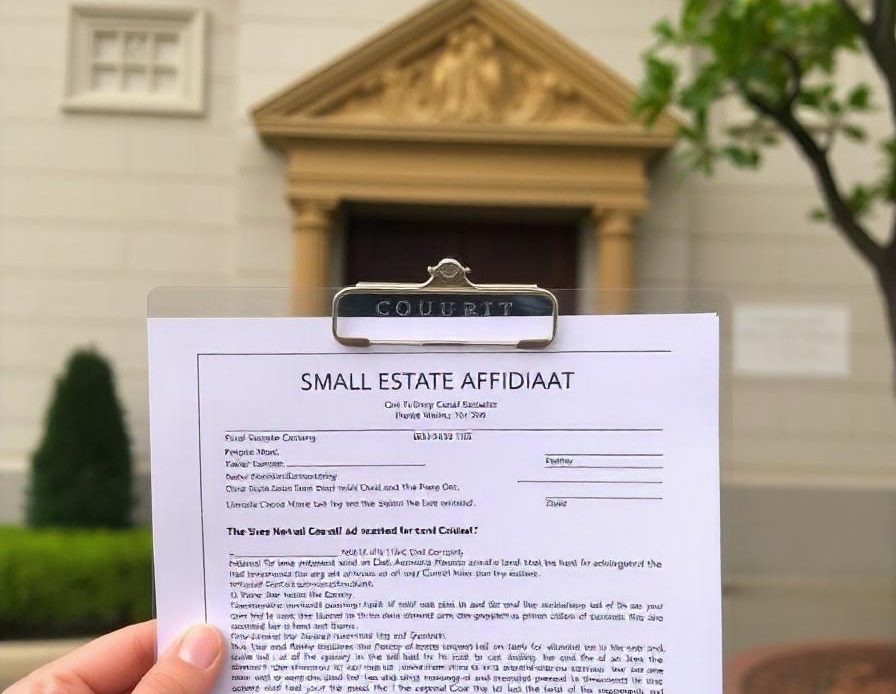The probate process in Texas can be expensive, especially for those below the middle class. Probate can take months or even years, depending on the circumstances, during which legal fees accumulate. This can be particularly burdensome if the estate being inherited is not worth significantly more than the legal costs involved.
Disputes among family members or other potential heirs over the distribution of assets can complicate matters further.
What is a Small Estate Affidavit?
A Small Estate Affidavit (SEA) is an alternative to full probate administration in Texas that allows heirs or beneficiaries to bypass the formal probate process. It provides a faster and more affordable way to transfer the assets of a deceased person to their heirs or beneficiaries. The SEA process is particularly useful when:
- The decedent died without a will.
- The assets are worth more than the debts.
- The decedent left no more than $75,000 in property.
- The only real property owned by the decedent was their homestead property, which is to be distributed.
- The homestead property will be inherited only by the decedent’s surviving spouse or minor children who were living with the decedent at the time of death.
- No probate application is pending or has been granted.
- All heirs will sign the Small Estate Affidavit, or someone with legal authority will sign on their behalf. However, some courts may not approve an SEA if any of the heirs are minors.
- There is no administrator, and no court has appointed a personal representative.
Benefits of a Small Estate Affidavit
The benefits of filing a Small Estate Affidavit in Texas include:
- The process is cheaper, simpler, and faster than formal probate.
- It requires fewer legal documents.
- Beneficiaries can receive their inheritance quickly.
- It does not require the posting of an estate bond.
Filing for a Small Estate Affidavit in Texas
Filing a notarized Small Estate Affidavit can take weeks to months, depending on the state. Once you’ve submitted the affidavit and necessary documents, the state will review them and may request additional information. Incorrect details or disputes among heirs can cause delays in the process.
It is advisable to consult an estate planning attorney if the situation is complex. However, many individuals can complete their Small Estate Affidavit on their own.
To file a Small Estate Affidavit in Texas, you will need to:
- Obtain a blank Small Estate Affidavit form from a probate court or download it from the website of the county where the decedent lived.
- Fill out the form at least 30 days after the decedent’s death. Most affidavit forms include instructions on how the form should be completed.
- Include required attachments, such as:
- A certified copy of the death certificate.
- Proof of the decedent’s ownership of any property listed in the form.
- Proof of your identity, typically a government-issued photo ID.
- An Inventory and Appraisal form of any real property owned by the decedent.
4. Provide a copy of the affidavit as required by the Texas Estates Code. The Code mandates that distributees of the estate, who are entitled to the decedent’s assets under Section 205.001, must provide a copy of the affidavit filed under this chapter to certain persons with a relationship to the estate.
5. Get your documents notarized if required.
6. Wait for the court to transfer the property to you.
7. Once the affidavit is approved, you can begin distributing assets according to state law.
Conclusion
A Small Estate Affidavit can be a cheaper, simpler, and faster alternative to probate in Texas. However, the process must be followed strictly. All heirs and beneficiaries must be notified and must agree to the affidavit, which also requires court approval. Proper filing is crucial, especially for homestead property, to notify all potential heirs and creditors.


